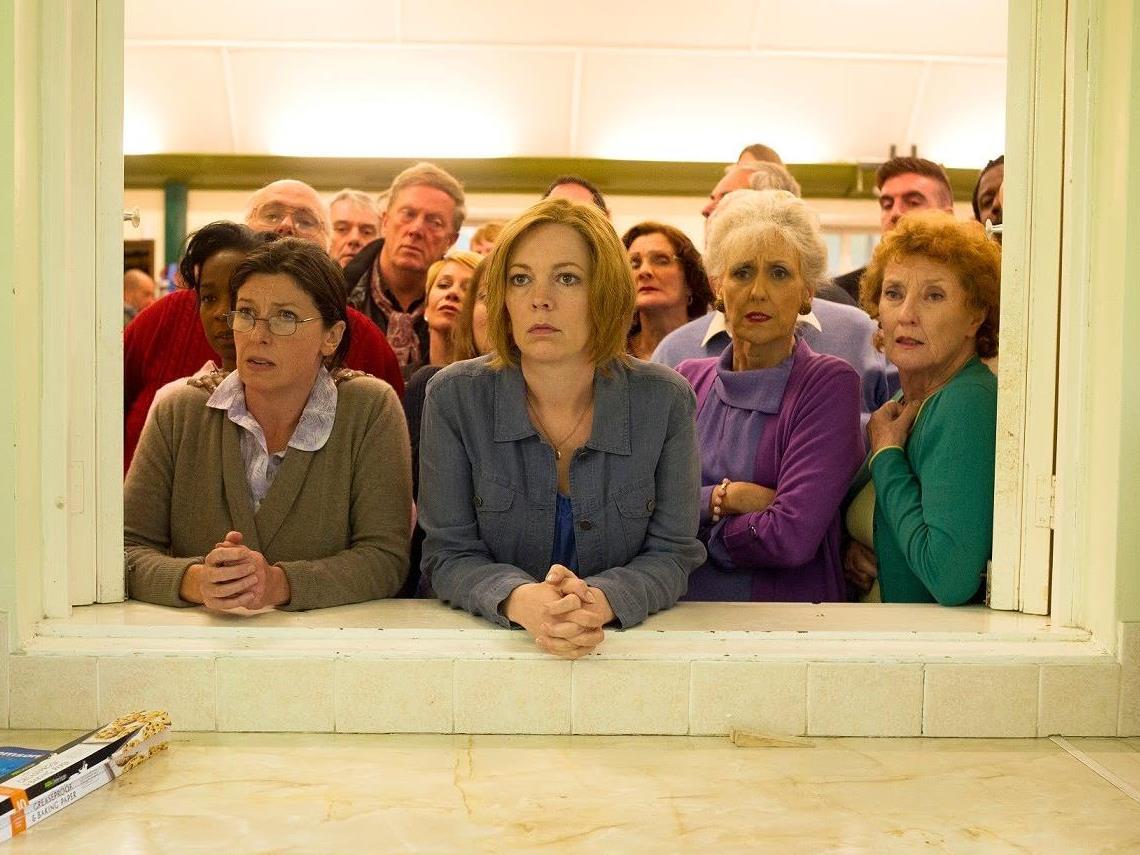When crime strikes a community, a chorus starts. The voices of the inhabitants and onlookers swell with emotion and sing with nervousness, their whispers becoming chatter, and their talk layered into a shared melody. London Road makes music out of this process, and gives a tune to a song that’s already building. The murders of five prostitutes on the street in England’s Ipswich in 2006 forms both the inspiration for and lyrics of the ditty-laced drama that results.
In fact, the Rufus Norris (Broken)-directed, Alecky Blythe-written film, as based on the National Theatre’s stage production of the same name helmed by the former and co-scripted by the latter with Adam Cork, literally turns the real-life Suffolk Strangler case and its accompanying reactions into a musical. The words uttered in the feature are taken from interviews with residents of the area, reporters covering the case and sex workers, all conducted over a three-year period that encompassed the initial acts, the investigation, the media frenzy, the subsequent trial and then the attempts to forge a new beginning.
Accordingly, the entire expected response to such a situation forms the narrative, first spanning the initial flourishes of horror and gossip, and then burrowing into the climate of fear and suspicion evident prior to an arrest being made. The indignation that arises once the legal process commences, plus the rebuilding and reclamation that follows, explores further dimensions of the tragedy. A selection of figures hover around the proceedings, including Julie (Olivia Colman, The Lobster), who becomes a local spokeswoman, and Mark (Tom Hardy, Mad Max: Fury Road), a taxi driver. When they’re not staring out of their windows at the goings-on on the titular road, or treading tentatively through the neighbourhood, they’re offering their thoughts direct to camera.
As Sweeney Todd attests, taking the musical genre into darker territory isn’t a new feat; however that London Road finds the human, not comic, side of its serial killer thrills — and shies away from the grisly details, as well as the accused — is where it branches into fascinating and moving territory. Using verbatim phrasing is paramount, whether creating repeated refrains out of murmured worries or recreating broadcast news coverage, and whether conveying sympathetic or less caring observations. As often proves the case, fact and actuality speak far louder than fiction and interpretation ever could, even when set to a tune and staged with distinctive theatricality and movement.
That embrace of form and origins, including reusing many of the players from the National Theatre production, is as audacious as it is overt. In translating the material to the screen in songs sung as stuttered, circular bursts of key expressions, the mannered approach becomes more so, yet heightening the contrast between the surreal performance elements and the authentic dialogue carves out a space to recognise the ripples crime causes within any public group. That the communal rather than the individual retains focus may lessen the sense of character, though statements and subtleties come through courtesy of the cast. In what proves an intriguing viewing experience from start to finish, Norris’ other choices fall in line with his actors, painting the screen in a sea of bleak tones until hope and colour blooms, and shooting his interiors and the film’s namesake setting closely before feeling bursts out.
Rating: 3.5 stars out of 5
London Road
Director: Rufus Norris
UK, 2015, 91 mins
Release date: September 24
Distributor: Sharmill
Rated: MA
Actors:
Director:
Format:
Country:
Release:





